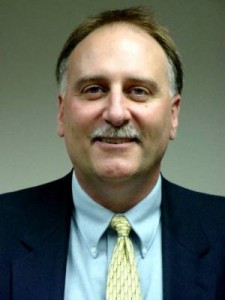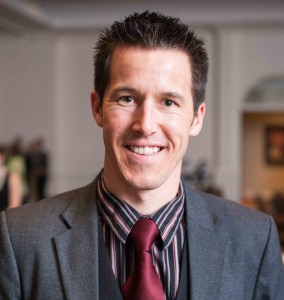Dr. John Kolander
 Dr. John Kolander, one of 15 off-campus instructors in MLC’s Master of Science in Education program, is a champion of Lutheran education in all aspects of his life: his ministry, his family, world missions—and, of course, the MLC graduate program.
Dr. John Kolander, one of 15 off-campus instructors in MLC’s Master of Science in Education program, is a champion of Lutheran education in all aspects of his life: his ministry, his family, world missions—and, of course, the MLC graduate program.
Having taught at Lutheran elementary, high school, and college level, he brings his experience and optimism to the MLC grad students who take his class, The School as a Learning Community. His goal is not only to improve Lutheran teachers, but to improve Lutheran schools. “I enjoy seeing educators excited about school improvement and feeling equipped to carry it out,” he says. “MLC provides a Christ-centered program of quality that is accessible to WELS educators. Bottom line: it assists in strengthening Lutheran schools.”
What few people know is that his interest is not only in Lutheran schools in America. He also works with the Edgar H and Meta A Hoenecke Vulnerable Children’s Foundation, Inc., which funds two schools in the Lutheran Church of Central Africa: Kaunda Square and Matero, both in Lusaka, Zambia. The schools educate 280 children, 80% of them identified as vulnerable: having no access to food, housing, or education due to their economic status, the abandonment of their parents, or the deaths of their parents (often due to HIV/AIDS). The foundation’s mission states that “It is our prayer that children living lives of faith and being educated in Lutheran schools will grow into healthy, educated, God-fearing adults who will assume leadership roles in a country lacking leaders.”
Kolander himself has been a leader in Lutheran schools for 30 years. A 1981 graduate of DMLC, he served 11 years as principal and upper-grade teacher at Samuel-Marshall MN and Immanuel-Waupaca WI, 12 years as teacher and assistant principal at Fox Valley LHS, and, most recently, seven years at Wisconsin Lutheran College, five as academic dean and two as provost. He has an MA in Curriculum and Instruction from the University of Wisconsin-Oshkosh and a PhD in Educational Administration from the University of Wisconsin-Madison.
Lutheran education is a trademark of the whole Kolander family. His wife, Anna (DMLC ’81), serves as assistant principal at Risen Savior-Milwaukee. Kurt, a Lutheran school grad, is completing his PhD in Biomedical Research at the Medical College of Wisconsin; Paul is a WLC grad currently enrolled in the Seminary Certification Program at MLC; Meta is graduating from WLC in May; and Sarah is graduating from Wisconsin Lutheran High School in May.
A member of Christ the Lord-Brookfield WI, Kolander enjoys camping, hiking, and cooking. His favorite books include historical fiction by Allan W. Eckert and the nonfiction of Malcolm Gladwell, including The Tipping Point and Blink.
“Dr. Kolander has always been a highly respected leader in Lutheran education,” says Director of Graduate Studies John Meyer. “I’ve admired his work since he was my mentor principal, helping me become a better educational leader. MLC’s graduate students are blessed to have a person of Dr. Kolander’s passion and experience as an instructor.”





